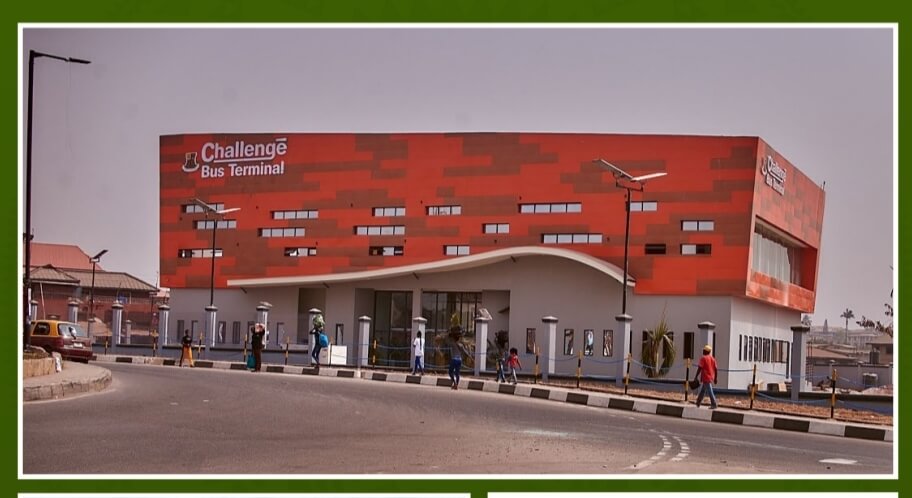As an independent observer with extensive grassroot coverage, it is that important that I speak on the current situation of increasing cost of living and particularly the ever-rising cost of food commodities in Oyo State and Nigeria as a whole. This is a national problem: ‘Nigeria declared a national emergency on food security July 13, 2023, as record inflation has made basic foods unaffordable for many. The president’s spokesperson also said authorities would boost the security architecture to protect farmers ‘.

For observers and political commentators, it came as a surprise that the government of Oyo State did not respond immediately to this public declaration. The people of Oyo State are aware of the massive interest the Oyo State government has in Agriculture. In fact, Agriculture was one of the major areas of focus in Omituntun 1.0 and remains one of the key areas of focus of this administration.
There were also massive investments in agriculture and agribusiness with Agricultural Hubs being proposed and one being built, and a major agriculture summit held in 2021 and another business summit held in London recently that had agriculture as one of the main areas of discussion. With all these, Oyo State should be expected to be reaping the yields from all the effort put into agriculture in the last 4 years.
Some of the government programmes that were lunched include:
Oyo State Agribusiness Park programme
Oyo State Regional Agribusiness Development Programme
Oyo State Sustainable Rural Cities Development Programme
Oyo State Agribusiness Policy and Governance Programme
Oyo State Agribusiness Park Programme
Oyo State Youth in Agribusiness Programme
There was also the YEAP programme, various trainings in collaboration with private partners and so on. The question now is what is the current impact of all the efforts and investments of the past 4 years on the citizens in Oyo State? A quick glance at the website of the Ministry of Agriculture and that of OYSADA does not provide any direction for agriculture in Oyo State both of which have not been updated lately.
The bottom-line in agriculture for the ‘Baba Taju or Iya Ronke’ is high food production which will translate to cheaper food commodities, no matter how much foreign investors/investments that come into the State, if food prices do not come down then the ‘Baba Tajus and Iya Ronkes’ all over the State will not benefit from these investments.
The government need to involve farmers that can practice farming and reduce the reliance on ‘agricultural policy experts’ many of whom have little practical experience. It is a sad situation that we do not have farm products with the Oyo State label on them in the market today. Too much money has been spent and too many meetings and programmes have been lunched, we need results that impact on the masses that is physical food products in the markets and on the tables in the family homes. We must separate the policy developers from the practical farmers, both roles cannot be rolled into one as it has not served us well.
During Omituntun 1.0, there was massive investments in agricultural input distributions, inputs were distributed in 2020, 2021 and 2022. Although these were laudable actions at the time, the question now is how do we measure the effectiveness of these distributions which involved massive financial investments? With all the money spent on agriculture in the last 4 years both by the Oyo State government and the private investors, Oyo State should be the model from which other State come to learn. However, this does not appear to be the case. Oyo State is the Pacesetter, and it is high time we take our rightful place as the ‘Food Basket’ of Nigeria.
I believe there is a simple solution to significantly boost our food production. Instead of investing billions into the building of massive structures on farm settlements, the government should purchase Tractors and agricultural machineries that can be leased to farmers at subsidised rates. The Oyo State government has Nine (9) farm settlements, the government can select one for example Eruwa, embark on large scale irrigation of the farmland on this selected farm settlement and bring in the YEAP trained youths to cultivate the land focusing on Vegetables that are high in vitamins, corn and sweet corn, tomatoes peppers, fruits etc. The irrigated farmland allows for all year-round farming and food production. The irrigation can be done within the next 3 to 4 months and by April/May 2024 the State will have its first massive yield of farm produce to help boost food production. The State can then purchase these food items and distribute to the poor. Doing it this way will also ensure accountability and transparency as we will be able to monitor all costs and record all inputs distributed and all outputs achieved.
A major part of the immediate solution is also to provide direct investments to our local farmers, I do not mean the usual seed and chemical distribution, what is required is bringing the Farmers associations, cooperatives, and communities to the table. We must go down to the Ward level and not just rely on the list of names coming from government officials and political groups. Elections are over and government programmes must positively touch everyone in the State irrespective of political association. Many of these groups are prepared to work with the government if the engagement process is conducive and well though through, we must remember that the local farmers are the main drivers to a sustainable food security. It is important that there is a change of approach as the previous farm distribution exercises has not translated to increased food for consumption. It is also important to note that foreign investors will only stay around when the going is good, but the local farmers will remain come rain come shine. Foreign investments are good, but they usually will not give the necessary quick gains required in this difficult time. Therefore, it is key that local farmers, farmer groups and associations are engaged in a meaningful way, I will suggest that His Excellency set up a programme for direct engagement with farmers cutting out the red tape.
I am appealing to his Excellency again to invest in Tractors and basic agricultural machines that can be rented out to local farmers at subsidised prices and to immediately set out aside a farm settlement that will be fully irrigated and let us put the youths (YEAP beneficiaries) to work. All these can be done in collaboration with the Oyo State College of Agriculture in Igbo Ora. The NGN500,000,000.00 (Five Hundred million) Enterprise Support Fund can be used to secure and irrigate 1000 hectares of farmland and then some of the farm inputs to be distributed to farmers can also be set aside for these youth farmers who will subscribe to the irrigated farm.

These are critical times where all the designer programmes from the last 4 years have not yielded the expected result. The Fashola Agribusiness Hub which started around March 2021 with a projected completion time of December 2021 is yet to be completed. We cannot wait for the completion of such projects before we act. Difficult times require drastic actions. Let us go back to the basics with some modification. We need to embark on large scale farm cultivation on fully irrigated farms now so that we can boost food production in Oyo State by 2024.
Finally, Oyo State must have transparent monitoring system for all programmes and projects rolled out by State agencies that can be accessed by the citizens to ensure accountability.
Idris Animasaun is a public affairs analyst and commentator writes from Ibadan.



